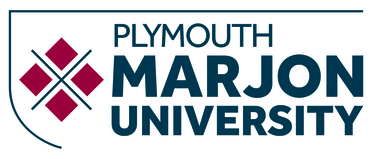Inspiratory Muscle Training Improves Exercise Tolerance in Recreational Soccer Players Without Concomitant Gain in Soccer-Specific Fitness
Guy, Joshua H., Edwards, Andrew M. and Deakin, Glen B. (2014) Inspiratory Muscle Training Improves Exercise Tolerance in Recreational Soccer Players Without Concomitant Gain in Soccer-Specific Fitness. Journal of Strength and Conditioning Research, 28 (2). pp. 483-491. ISSN 1064-8011
|
Text
Inspiratory Muscle Training Improves Exercise Tolerance in Recreational Soccer Players Without Concomitant Gain in Soccer-Specific Fitness.pdf Restricted to Repository staff only Download (282kB) | Request a copy |
Abstract
Abstract: Guy, JH, Edwards, AM, and Deakin, GB. Inspiratory muscle training improves exercise tolerance in recreational soccer players without concomitant gain in soccer-specific fitness. J Strength Cond Res 28(2): 483–491, 2014—This study investigated whether the addition of inspiratory muscle training (IMT) to an existing program of preseason soccer training would augment performance indices such as exercise tolerance and sports-specific performance beyond the use of preseason training alone. Thirty-one men were randomized across 3 groups: experimental (EXP: n = 12), placebo (PLA: n = 9), and control (CON: n = 10). The EXP and PLA completed a 6-week preseason program (2× weekly sessions) in addition to concurrent IMT with either an IMT load (EXP) or negligible (PLA) inspiratory resistance. Control group did not use an IMT device or undertake soccer training. All participants performed the following tests before and after the 6-week period: standard spirometry; maximal inspiratory mouth pressure (MIP); multistage fitness test (MSFT); and a soccer-specific fitness test (SSFT). After 6-weeks training, EXP significantly improved: MIP (p = 0.002); MSFT distance covered (p = 0.02); and post-SSFT blood lactate (BLa) (p = 0.04). No other outcomes from the SSFT were changed. Pre- to posttraining performance outcomes for PLA and CON were unchanged. These findings suggest the addition of IMT to preseason soccer training improved exercise tolerance (MSFT distance covered) but had little effect on soccer-specific fitness indices beyond a slightly reduced posttraining SSFT BLa. In conclusion, there may be benefit for soccer players to incorporate IMT to their preseason training but the effect is not conclusive. It is likely that a greater preseason training stimulus would be particularly meaningful for this population if fitness gains are a priority and evoke a stronger IMT response.
| Item Type: | Article |
|---|---|
| Keywords: | respiratory, blood lactate, preseason |
| Divisions: | ?? UniversityCollegePlymouthMarkJohn ?? |
| Depositing User: | Users 134 not found. |
| Date Deposited: | 24 Feb 2017 20:52 |
| Last Modified: | 10 Aug 2020 15:47 |
| URI: | https://marjon.repository.guildhe.ac.uk/id/eprint/15407 |
Actions (login required)
 |
Edit Item |

